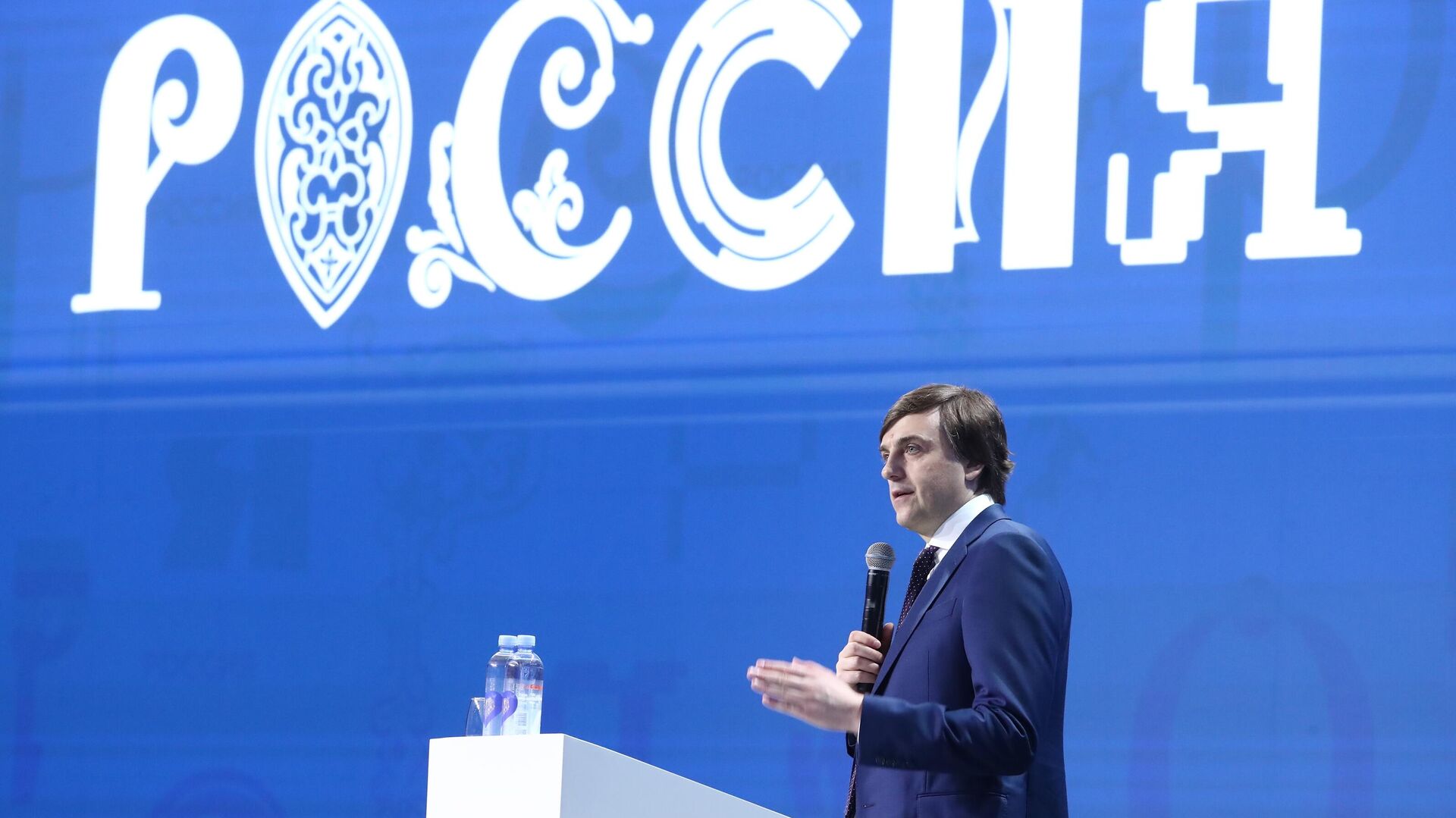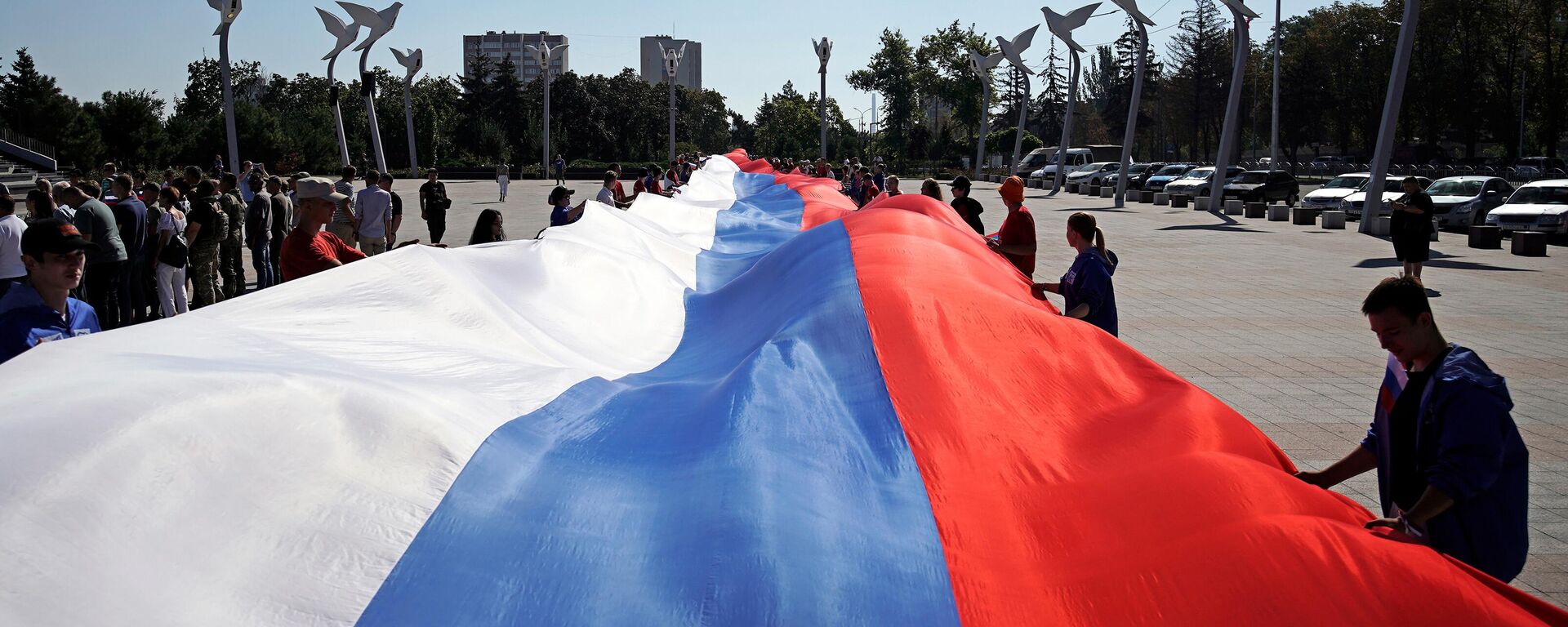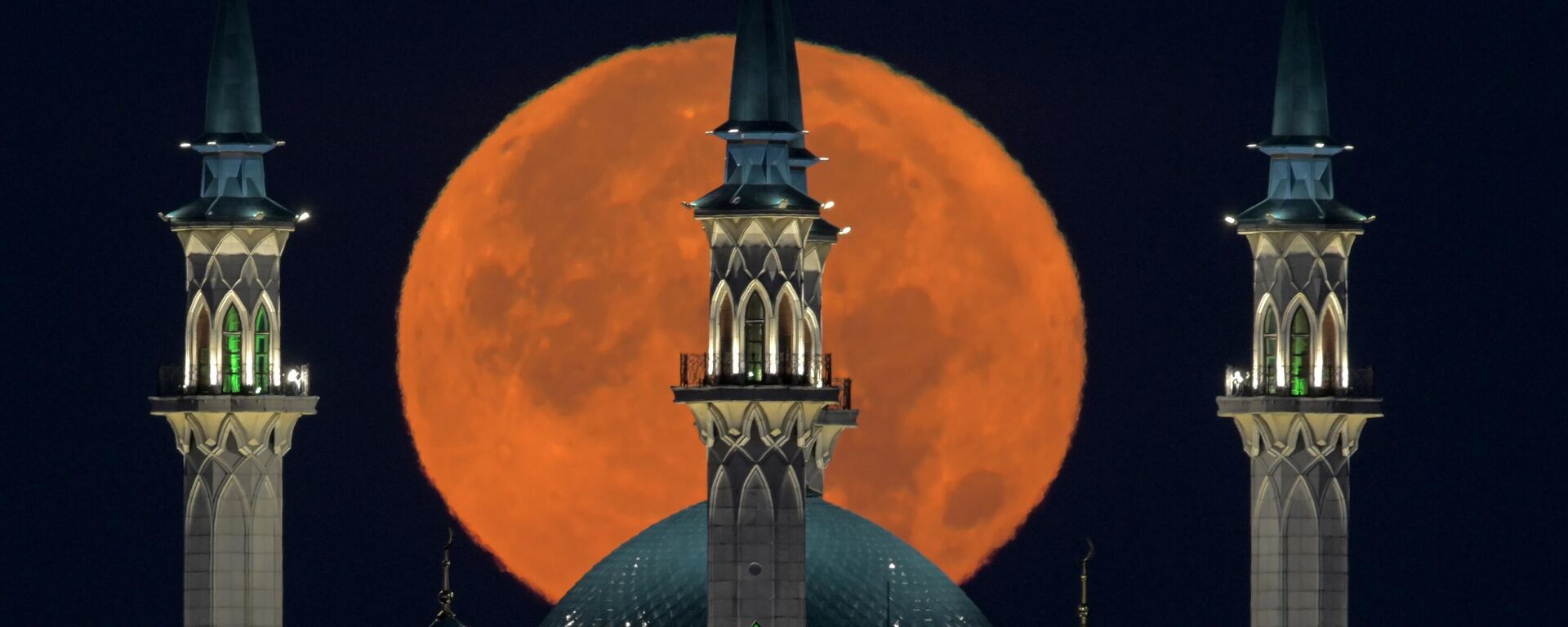https://sputnikglobe.com/20240611/international-forum-of-education-ministers-establishes-working-group-on-ai-creative-professions-1118907695.html
International Forum of Education Ministers Establishes AI and Creative Professions Workgroup
International Forum of Education Ministers Establishes AI and Creative Professions Workgroup
Sputnik International
The participants of the International Forum of Ministers of Education “Shaping the Future” have signed the Declaration on creating a working group on creative professions, using artificial intelligence (AI) in education and establishing engineering schools.
2024-06-11T17:59+0000
2024-06-11T17:59+0000
2024-06-11T18:12+0000
world
russia
kazan
ministry of education and science
venezuela
niger
dominican republic
cuba
laos
gambia
https://cdn1.img.sputnikglobe.com/img/07e8/06/0b/1118907932_0:192:3193:1988_1920x0_80_0_0_c213a9f55f135910b138d5c08e660cd7.jpg
Over 20 countries have committed to setting up a workgroup for creative professions, using artificial intelligence (AI) in education and establishing engineering schools.The workgroup aims to tackle international cooperation and exchange of national experiences in the three areas. The interaction seeks to give the participating nations opportunities to get quality and accessible education and improve learning outcomes.The document was signed by Russia's Minister of Education Sergei Kravtsov, as well as heads of delegations from 20 countries, including Venezuela, Niger, the Dominican Republic, Cuba, Laos, the Gambia, Uganda, and Zimbabwe. Any interested countries will also be able to join the declaration within a few months.According to the declaration, the creation of the workgroup is linked to the fact that creative industries currently represent one of the most dynamic sectors of the world economy and international trade. When it comes to AI, they have a significant impact on various aspects of life, including the growing pace of introducing information and communication technologies, as well as AI-based systems.Kravtsov noted that the areas of further cooperation might include progress in science education, teaching the Russian language, and organizing pupil and student exchanges. He added that it was important to discuss issues related to secondary professional education.The established group will become a platform for the exchange of proposals on the matter and will contribute to further cooperation.Russia’s Deputy Minister of Education Denis Gribov noted that today, the Russian system of secondary professional education is training personnel for creative industries in 79 different professions and specialties. It is expected that consistent federal support for creative industries will increase their share in the Russian economy from the current 2.2% to 6% by 2030, as well as increase the share of citizens employed in creative professions from 4.6% to 15%.The official shared that the priority task in Russia’s education system is to create opportunities for adapting the younger generation to the digital economy.This is where the All-Russian Olympiad in Artificial Intelligence comes in handy. It implements educational and methodical efforts aimed at studying the basics of AI systems. Besides, programs to study the use of these technologies through secondary professional education are in development.Gribov noted that there are two options for cooperation in engineering education for Russia’s foreign colleagues. The first concerns developing engineering education using the mechanism of continuous learning and interaction, described as “school - college/university – business”. The second is to create classes with in-depth study of individual subjects.The declaration takes into account key provisions of the UNESCO Framework for Culture and Arts Education adopted in 2024 by the World Conference on Culture and Arts Education held in Abu Dhabi.The document was also based on the “Recommendation on the Ethics of Artificial Intelligence”, approved at the UNESCO General Conference during the 41st session in 2021.
https://sputnikglobe.com/20240610/russia-will-share-its-technologies-in-education-with-partner-countries-1118895807.html
https://sputnikglobe.com/20240610/shaping-the-future-forum-starts-in-russias-kazan-1118894654.html
russia
kazan
venezuela
niger
dominican republic
cuba
laos
gambia
uganda
zimbabwe
Sputnik International
feedback@sputniknews.com
+74956456601
MIA „Rossiya Segodnya“
2024
Sputnik International
feedback@sputniknews.com
+74956456601
MIA „Rossiya Segodnya“
News
en_EN
Sputnik International
feedback@sputniknews.com
+74956456601
MIA „Rossiya Segodnya“
Sputnik International
feedback@sputniknews.com
+74956456601
MIA „Rossiya Segodnya“
international forum of education ministers, shaping the future forum, educational forum in russia, education forum in kazan
international forum of education ministers, shaping the future forum, educational forum in russia, education forum in kazan
International Forum of Education Ministers Establishes AI and Creative Professions Workgroup
17:59 GMT 11.06.2024 (Updated: 18:12 GMT 11.06.2024) Those at the International Forum of Ministers of Education “Shaping the Future” have signed a declaration to create a workgroup on creative professions, using artificial intelligence (AI) in education and establishing engineering schools.
Over 20 countries have committed to setting up a workgroup for creative professions, using artificial intelligence (AI) in education and establishing engineering schools.
The workgroup aims to tackle international cooperation and exchange of national experiences in the three areas. The interaction seeks to give the
participating nations opportunities to get quality and accessible education and improve learning outcomes.
The document was signed by Russia's Minister of Education Sergei Kravtsov, as well as heads of delegations from 20 countries, including Venezuela, Niger, the Dominican Republic, Cuba, Laos, the Gambia, Uganda, and Zimbabwe. Any interested countries will also be able to join the declaration within a few months.
According to the declaration, the creation of the workgroup is linked to the fact that creative industries currently represent one of the most dynamic sectors of the world economy and international trade. When it comes to AI, they have a significant impact on various aspects of life, including the growing pace of introducing information and communication technologies, as well as AI-based systems.
Kravtsov noted that the areas of further cooperation might include progress in science education, teaching the Russian language, and organizing pupil and student exchanges. He added that it was important to discuss issues related to secondary professional education.
The established group will become a platform for the exchange of proposals on the matter and will contribute to further cooperation.
“Indeed, we need to exchange experience. I believe that education is the area where all countries should cooperate, make friends, and make our world even better and safer together. It is important that all countries hear each other. We shape the future of equal nations, equal opportunities for our children. And it is up to all of us how this future world will turn out,” the minister said.
Russia’s Deputy Minister of Education Denis Gribov noted that today, the Russian system of secondary professional education is training personnel for creative industries in 79 different professions and specialties. It is expected that consistent federal support for creative industries will increase their share in the Russian economy from the current 2.2% to 6% by 2030, as well as increase the share of citizens employed in creative professions from 4.6% to 15%.
The official shared that the priority task in
Russia’s education system is to create opportunities for adapting the younger generation to the digital economy.
This is where the All-Russian Olympiad in Artificial Intelligence comes in handy. It implements educational and methodical efforts aimed at studying the basics of AI systems. Besides, programs to study the use of these technologies through secondary professional education are in development.
Gribov noted that there are two options for cooperation in engineering education for Russia’s foreign colleagues. The first concerns developing engineering education using the mechanism of continuous learning and interaction, described as “school - college/university – business”. The second is to create classes with in-depth study of individual subjects.
The declaration takes into account key provisions of the UNESCO Framework for Culture and Arts Education adopted in 2024 by the World Conference on Culture and Arts Education held in Abu Dhabi.
The document was also based on the “Recommendation on the Ethics of Artificial Intelligence”, approved at the UNESCO General Conference during the 41st session in 2021.
On June 10-11, the Russian city of Kazan is hosting the “Shaping the Future” forum. The event demonstrates the successes of Russia’s national sovereign system of education and presents practices in organizing the educational process.




